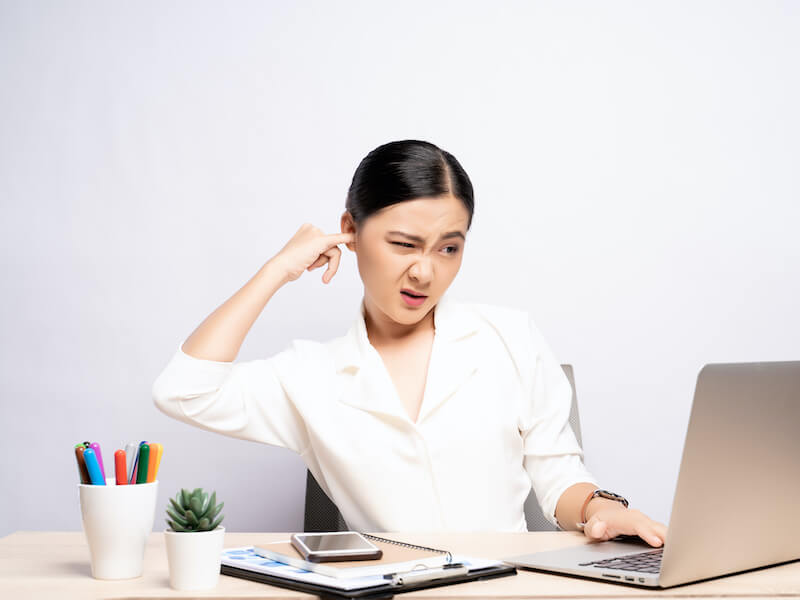
We’ve all experienced that itch that seemed impossible to reach.
You might consider this in a couple of different ways: First, you consider something you always wanted to do with your life but you never got around to (skydiving, for instance). Or, if you’re a bit less of a romantic, you think about that spot on your back that you just can’t quite scratch.
That’s kind of a terrible experience, right? Feeling that itch and being desperate to get to that spot on your back. It’s the reason why back-scratchers exist.
Sadly, there’s no such device that can get rid of itching in your ears. That itchy feeling is coming from inside your ear canal, somewhere that you physically can’t reach (no matter how hard you try). It’s even worse than that spot on your back, and it’s not shocking that itchy ears are most likely driving you crazy.
Your everyday life can be impacted by itchy ears
It may sound like a small problem, superficially. Itchy ears? It could be much worse, right? At least you aren’t in horrible pain.
Here’s something to consider: Your ear is itchy, and you can’t do anything about it. No big deal, if it only occurs from time to time. But if your ears are itchy all the time? You could find yourself, and your quality of life, considerably impacted.
Maybe you stay home and quit socializing with friends. Or perhaps you try to overpower the sensation by listening to overly loud music.
It sucks. But treatments and solutions do exist. Discovering the best way to treat itchy ears means understanding what causes them in the first place.
So what causes your ears to itch?
So why are your ears itching? And what can you do about it? Depending on the root cause, itchy ears will have different solutions. Your ears could be being affected by many underlying causes, as with most medical conditions. Amongst the most prevalent are the following:
- You have an earwax blockage: Look, it’s perfectly normal for your ears to generate a copious amount of wax. That’s because wax is good for your ears and (counter-intuitively) helps clean them! But there are a number of reasons why blockages can develop. One thing you should stop doing right away is using cotton swabs to “clean” your ears. We can, in any case, help you get rid of any earwax troubles. So you will get some relief by scheduling an appointment with us.
- Improper hearing aid fitting: Hearing aids are made to fit snugly in your ears. That’s how you get the optimum sound and the most successful results. But when your hearing aids don’t fit correctly, this snugness can quickly turn into irritation and itchiness. This, as a result, can cause you to stop using your hearing aids as frequently, and that can be detrimental to your hearing. The solution is to come in and consult us for a proper fitting. We may even be able to mold your hearing aid so it better fits your ear.
- Ear infections: That’s correct, the cause of your itchy ears can be a normal ear infection. Ear infections can occur at any age but happen more frequently when you’re younger. Ear infection can cause fluid buildup in your ear. At the same time, the tissues inside of your ears can begin to become inflamed. Very itchy ears can be the result of this trapped fluid and irritated tissue. Treating the infection with the help of your doctor is the answer. Your ears will normally stop itching when the infection goes away.
- Skin disorders: Occasionally, a skin disorder can cause a response in spots you can’t itch. There’s even a condition called ear dandruff that can happen. Your doctor will be able to help you determine what your options are. It isn’t exactly easy to smear your ear canal with moisturizer, after all, nor would we ever suggest you try. If you have this type of skin condition, your doctor is, once again, your best bet.
- Allergies: Allergies are challenging, and it’s not uncommon for them to cause itching. You can sometimes minimize your symptoms by using an over-the-counter allergy medicine, such as an antihistamine. It’s often hard to identify exactly what you’re having an allergic reaction to. But a large number of allergens, including pollen, can trigger itchy ears. So your spring hay fever could quickly translate into itchy ears. If the itching continues, you should consult an allergist about finding a solution (and relief).
Getting relief for your itchy ears
Pretty much every activity becomes less fun with itchy ears. Your life can actually be changed by getting relief with the correct treatment. If you attempt to just wait it out, you will probably prolong your suffering because it’s not likely that the itching will go away on its own.
Stop focusing on your itchy ears and go back to enjoying your life. Contact us for a consultation.
